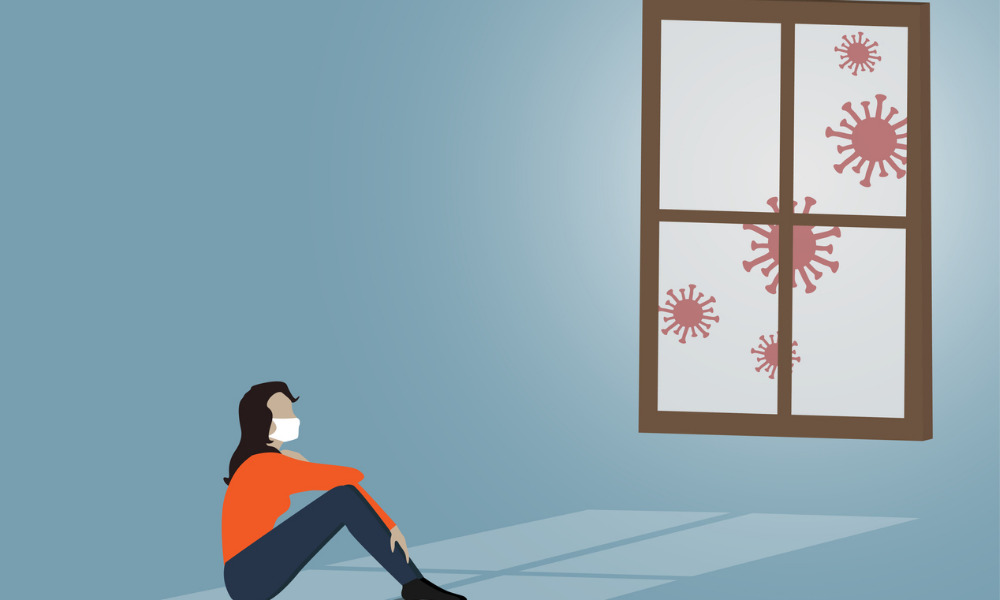Two years of bad news is worsening the toll on mental health

Approaching the two-year mark on the pandemic, it’s hard to find a bright spot these days.
Whether it’s another chart showing COVID cases spiking dramatically or another variant looming on the horizon — now it’s the omicron subvariant BA.2 — I’m having trouble seeing a light at the end of this tunnel. It never seems to end. Just when you think you see relief ahead, the darkness falls once again.
My pessimism is matched by recent survey results released by the Centre for Addiction and Mental Health (CAMH) in Toronto.
Adult Canadians are reporting levels of moderate to severe anxiety, loneliness and feelings of depression that are as high as early in the pandemic.
Overall, a quarter (25.1 per cent) of survey participants reported feeling moderate to severe anxiety — significantly higher than the 19 per cent reported in the last survey completed in July 2021.
Similar spikes were found in reports of loneliness (24.1 percent now compared to 18.8 per cent last summer) and feelings of depression (22.3 percent now compared to 18.6 per cent last summer), finds the survey of 1,004 Canadians in January.
"I think for a lot of people, this wave feels different from the other waves, like the rug has been pulled out from under them after they thought the worst was over," says CAMH psychiatrist David Gratzer. "I am seeing more pessimism and less resilience than in previous waves.”
That matches results found in another survey showing nearly half of Canadians (48 per cent) were more stressed to start 2022 than they were during the first lockdowns in 2020.
Not surprisingly, jobs make a difference: People with jobs that expose them to a high risk of contracting COVID-19 reported large increases in adverse mental health symptoms, with 37 per cent reporting moderate to severe anxiety compared to 23.5 per cent last summer; and 35.7 per cent reporting feelings of depression compared to 24.8 per cent last summer — the highest levels recorded since the pandemic began.
"After all of the ups and downs of the pandemic, in terms of the overall mental health of Canadians, in many ways we are right back to where we were two years ago," says Hayley Hamilton, survey co-lead and senior scientist at the Institute for Mental Health Policy Research.
"With Omicron in full force during this survey period, the relatively lower levels of mental distress reported last summer when the vaccine rollout was in full swing are now a distant memory for a lot of people."
Both say it’s more important than ever to invest in mental health to prepare the healthcare system for the fall-out from this pandemic.
Of course, employers will also want to take note — once again. While many in HR, along with leadership, threw themselves into reassuring and motivating staff as COVID took hold, how are things two years in? I can imagine many programs have fallen by the wayside, which could lower employee morale.
That’s suggested in a recent survey that shows employees rank their organization's support for mental health a 4.4 on a scale of one to 10, while employers rate themselves a 7.6.
With no end in sight, we’ve got to press on, and that may mean rolling out new initiatives, and bringing back others that were used in the early days of the pandemic, because employees are hurting, and they will appreciate the help.




